Thelma Finlayson Chair in Biological Control
The property
TENURE-TRACK APPOINTMENT
THELMA FINLAYSON CHAIR IN BIOLOGICAL CONTROL
Department of Biological Sciences, Faculty of Science
The Department of Biological Sciences (BISC) at Simon Fraser University invites applications, from Canadian and international researchers, for a full-time tenure-track position at the rank of Assistant or Associate Professor for the Thelma Finlayson Chair in Biological Control. This Chair is funded through a substantial endowment from the late Professor Thelma Finlayson (Order of Canada).
We invite applications from outstanding, early-career scientists from a broad range of disciplines related to biological control or pest management, including but not limited to applied insect biology, plant-insect interactions, invasion biology, and plant or insect genetics, biotechnology, or genomics, in any forest, agricultural, horticultural, urban or natural ecosystem. The position would begin no earlier than September 2025. The successful candidate should have demonstrated research excellence through a strong publication record in internationally recognized, peer-reviewed journals and be a current or future leader in their field. The new hire will be expected to contribute to development and teaching of new or existing courses related to biological control and pest management, as well as other core undergraduate and graduate courses in BISC’s program. We encourage applications from researchers who will contribute to the Department’s efforts in supporting equity, diversity and inclusion.
About Biological Sciences and SFU
The Department of Biological Sciences (BISC) was established at SFU in 1965, making it one of the younger Biology Departments in Canada. BISC remains a broad-based Biology Department with research interests of faculty ranging from cell and molecular biology, through organismal biology and physiology, to ecology, evolutionary biology and conservation. We currently comprise 30 research faculty and 9 teaching faculty, with ~650 Undergraduate majors and ~100 Graduate students. The Department has research groups in behavioural ecology (eBERG), applied biology (with a Masters of Environmental Toxicology), cell biology (Centre for Cell Biology, Development and Disease - C2D2), aquatic conservation (Earth2Ocean), avian ecology and conservation (the Centre for Wildlife Ecology - CWE), and evolutionary biology (Crawford Lab of Evolutionary Studies). Situated on the Burnaby campus, Biological Sciences is a short walk from the University Childcare Centre, athletic facilities, and scenic hiking trails.
Simon Fraser University (SFU) is one of Canada’s top-ranked comprehensive universities. With three campuses located in beautiful British Columbia’s largest municipalities – Vancouver, Burnaby, and Surrey - our students, faculty, and staff are privileged to live and work on the traditional unceded territories of the xʷməθkʷəy̓əm (Musqueam), Sḵwx̱wú7mesh Úxwumixw (Squamish), səlilwətaɬ (Tsleil-Waututh), q̓íc̓əy̓ (Katzie), kʷikʷəƛ̓əm (Kwikwetlem), Qayqayt, Kwantlen, Semiahmoo and Tsawwassen peoples. Consistently ranked as one of Canada’s top employers, SFU’s takes pride in fostering a supportive and accommodating environment for all our members.
Core duties of an Assistant or Associate Professor in Biological Sciences
- Research: Develop an externally funded research program including supervising and mentoring graduate students and highly qualified personnel in research training, and disseminating discoveries through peer-reviewed publications, conference presentations, and other forums appropriate to the discipline.
- Teaching: Teach undergraduate and graduate courses including contributions to core, large-enrollment lower-division courses, and curriculum and program development.
- Service: Perform service to the Department and the University, such as serving on committees and participating in departmental initiatives.
Qualifications for Assistant Professor
Excellence in research and teaching are the primary criteria for this position. The successful candidate must hold a PhD in any area of biology related to pest management or biological control by the employment start date.
The candidate must demonstrate:
- a strong record of research productivity commensurate with their experience;
- establishment of, or potential for, a successful research program;
- potential for excellence in teaching at both the undergraduate and graduate level;
- potential for excellence in supervision of graduate students
Qualifications for Associate Professor
Excellence in research and teaching are the primary criteria for this position. The successful candidate must hold a PhD in any area of biology related to pest management or biological control. Only those holding or expected to hold the rank prior to the employment start date will be considered.
The candidate must demonstrate:
- a strong record of research productivity commensurate with their experience;
- evidence of establishment of a successful, externally-funded research program;
- evidence of success in teaching at both the undergraduate and graduate level;
- evidence of supervision of graduate students;
- demonstrated contribution to the academic community and potential contribution to the Department, Faculty and University’s academic community.
The typical workload distribution for tenure-track Assistant or Associate Professors at SFU is 40% research, 40% teaching, and 20% service. In carrying out these duties, the successful candidate will advance BISC’s goals to foster equity, diversity, and inclusion by working to eliminate the barriers that impede the ability of department members from historically underrepresented and marginalized populations to achieve their full potential. The successful candidate will foster a positive and inclusive working environment through respectful interactions with all faculty, staff, and students. The responsibilities, terms and conditions of employment of research faculty are listed in the SFU-SFUFA Collective Agreement.
Faculty salaries at SFU are based on the salary scales bargained between the University and the SFU Faculty Association. A reasonable estimate of the base salary range for this role at the Assistant Professor rank is $104,700 - $133,322 (dependent on experience). A reasonable estimate of the base salary range for this role at the Associate Professor rank is $130,142 - $155,584 (dependent on experience).
The Successful Candidate
The following credentials, skills, expertise, experience, values, and attitudes comprise the desired qualifications.
The successful candidate must:
- Hold a PhD in any area of biology related to pest management or biological control.
- Have demonstrated excellence in research related to pest management or biological control. Criteria for assessment of excellence could include:
- extensive experience conducting scientific studies in the specified research area,
- high-quality scientific publications in leading peer-reviewed journals of the field,
- awards and/or secured external funding (including scholarships),
- dissemination of research contribution via conferences and seminars,
- Articulate a compelling vision for a research program that addresses questions of fundamental importance to the field and has clear potential to attract top-quality trainees, extramural funding, new scientific collaborations, and uptake by knowledge users.
- Show clear evidence of, or potential for, excellence as a mentor of graduate students and research trainees, especially those from equity-deserving groups.
- Demonstrate deep and broad knowledge of fields related to biological control to teach undergraduate and graduate courses effectively in these areas.
- Outstanding interpersonal and communication skills (oral and written, in English) including, but not limited to, strong listening skills, valuing and respecting diverse perspectives, and a collaborative disposition.
The following qualifications are considered assets:
- Collaborations with other national and international researchers in their field of study
- Invited talks at national/international meetings.
- Strong potential for effective knowledge translation and community engagement (e.g., with provincial, national and international organisations).
- Evidence of a keen interest in teaching, strong pedagogical skills, and effectiveness in fostering inclusive learning environments.
- Strong potential to be an engaged academic citizen, in part by demonstrating a record of volunteerism and participation in service activities, such as committee work, outreach initiatives, etc.
- Evidence of past contributions to enhancing equity, diversity, and inclusion within research, service, and teaching, understanding of inclusive teaching and mentoring, and how the candidate would meet the needs of equity‑deserving students.
How To Apply
Candidates should address their applications to Dr. Tony D. Williams, Chair of the Search Committee. Informal enquiries about this position can be directed to Tony Williams (biscchr@sfu.ca).
Applications should consist of a single PDF file inclusive of, and bookmarked for, the following components:
- A concise cover letter (maximum two pages) that addresses the following items: 1) reasons for applying to the position, and 2) a narrative description highlighting evidence that the candidate meets the job qualifications and can effectively perform the listed job duties.
- A complete up-to-date curriculum vitae that lists the candidate’s education and employment history, publications and conference presentations, funding and awards, student supervision, collaborations/partnerships, teaching experience, and service activities.
- A research statement (maximum two pages) that describes the candidate’s research experience, goals, and a five-year plan for their research program.
- Three examples of peer-reviewed published scholarly work.
- A teaching statement (maximum two pages) that describes the candidate’s teaching philosophy, teaching experience, and evidence of teaching effectiveness.
- A statement (maximum one page) describing past or potential contributions to enhancing equity, diversity, and inclusion within research, service, and teaching. With regards to the latter component, candidates should discuss their experience with, and/or understanding of, inclusive teaching and mentoring, and how the candidate would meet the needs of equity‑deserving students.
- The names, titles, and email addresses of 3 referees who are qualified to assess the candidate’s research, service and, if possible, teaching capabilities. Referees will be contacted by SFU for candidates advancing to the later stages of the selection process.
- Please indicate your legal status to work in Canada.
All application materials should be submitted as a single pdf via an online application form: https://www.sfu.ca/biology/about/employment/faculty/faculty-thelma-finlayson-chair-repost.html
Full consideration will be given to applications received by September 17, 2024. Applications received after this deadline may be reviewed if the position is still open.
SFU offers several benefits and services aimed at creating a more inclusive and accessible campus community for faculty; please see the Faculty Relations, Benefits and Service page for more details. SFU is also committed to ensuring that the application process is accessible to all applicants. If you require accommodations or have questions about SFU benefits, services, accommodations policies, or equity considerations, please contact the Specialist, Equity, Diversity and Inclusion in Faculty Relations.
All qualified candidates are encouraged to apply; however, Canadian citizens and permanent residents will be given priority. Personal information that forms part of an application is collected under the general authority of the Freedom of Information and Protection of Privacy Act, applicable University Policies, and the SFUFA/SFU Collective Agreement. For further details see the full the Collection Notice.
The position is subject to availability of funding and approval by the SFU Board of Governors.

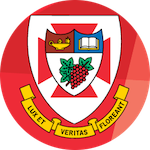

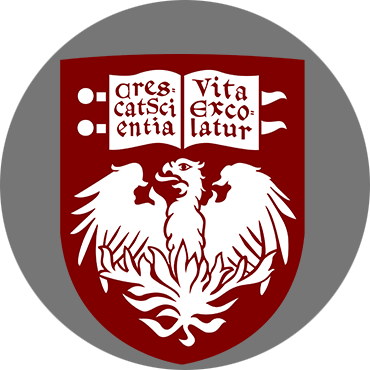

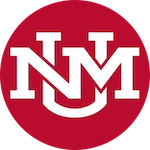
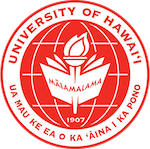

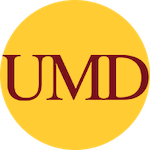
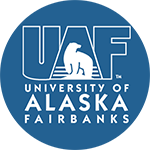
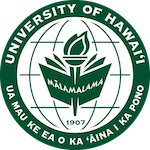
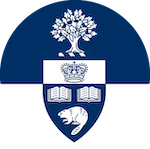

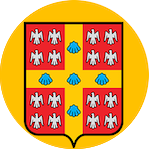
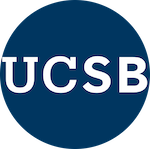





Sorry, the comment form is closed at this time.